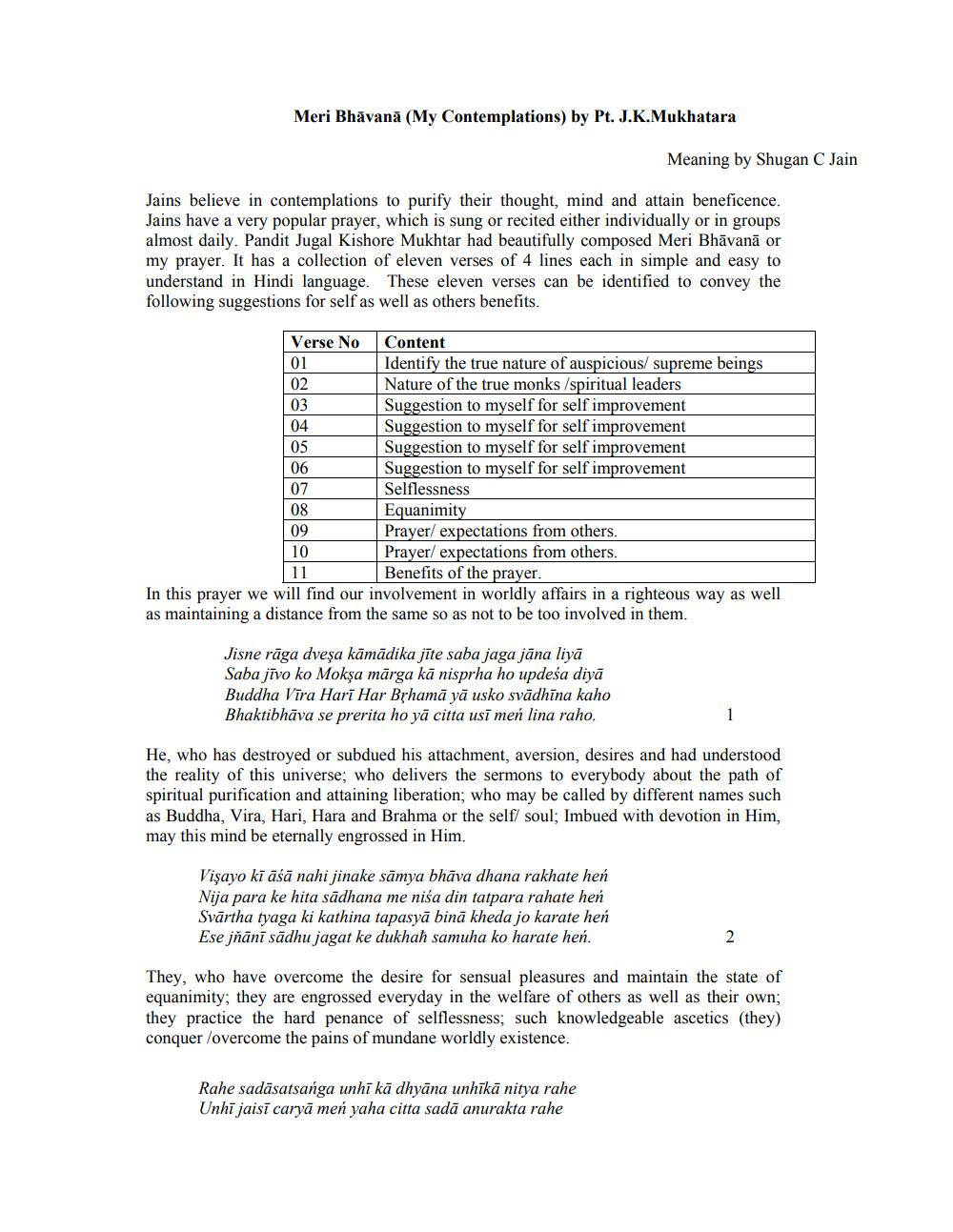Book Title: Meri Bhavna Author(s): Jugalkishor Mukhtar Publisher: ZZZ Unknown View full book textPage 1
________________ Meri Bhāvanā (My Contemplations) by Pt. J.K.Mukhatara Meaning by Shugan C Jain Jains believe in contemplations to purify their thought, mind and attain beneficence. Jains have a very popular prayer, which is sung or recited either individually or in groups almost daily. Pandit Jugal Kishore Mukhtar had beautifully composed Meri Bhāvanā or my prayer. It has a collection of eleven verses of 4 lines each in simple and easy to understand in Hindi language. These eleven verses can be identified to convey the following suggestions for self as well as others benefits. 02 03 06 Verse No Content 01 Identify the true nature of auspicious/ supreme beings Nature of the true monks /spiritual leaders Suggestion to myself for self improvement 04 Suggestion to myself for self improvement 05 Suggestion to myself for self improvement Suggestion to myself for self improvement 07 Selflessness 08 Equanimity Prayer/ expectations from others. 10 Prayer/ expectations from others Benefits of the prayer. In this prayer we will find our involvement in worldly affairs in a righteous way as well as maintaining a distance from the same so as not to be too involved in them. 11 Jisne rāga dveşa kāmādika jīte saba jaga jāna liyā Saba jīvo ko Moksa mārga kā nisprha ho updeśa divā Buddha Vira Hari Har Brhamā yā usko svādhina kaho Bhaktibhāva se prerita ho yā citta usī men lina raho. He, who has destroyed or subdued his attachment, aversion, desires and had understood the reality of this universe; who delivers the sermons to everybody about the path of spiritual purification and attaining liberation; who may be called by different names such as Buddha, Vira, Hari, Hara and Brahma or the self soul; Imbued with devotion in Him, may this mind be eternally engrossed in Him. Vişayo ki āśā nahi jinake sāmya bhāva dhana rakhate hen Nija para ke hita sādhana me nisa din tatpara rahate hen Svārtha tyaga ki kathina tapasyā binā kheda jo karate heń Ese jñānī sādhu jagat ke dukhah samuha ko harate hen. They, who have overcome the desire for sensual pleasures and maintain the state of equanimity; they are engrossed everyday in the welfare of others as well as their own; they practice the hard penance of selflessness, such knowledgeable ascetics (they) conquer /overcome the pains of mundane worldly existence. Rahe sadāsatsanga unhī kā dhyāna unhīkā nitya rahe Unhi jaisī caryā men yaha citta sadā anurakta rahePage Navigation
1 2 3
